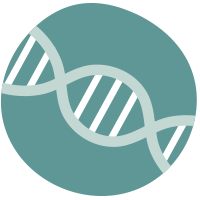
Cell Therapy News
Cell Therapy News is an online resource dedicated to sharing the latest cell therapy, gene therapy, and regenerative medicine research.
IL-21 Loading CaMnCO3 Vitality Backpacks Boost CAR-T Cell Synergistic Immunotherapy
[Small] Acid-sensitive responsive CaMnCO3 nanoparticles were developed that simultaneously mitigate tumor microenvironment acidosis and hypoxia.
Immunotherapy-Related Cognitive Impairment after CAR T Cell Therapy in Mice
[Cell] Investigators demonstrated in mouse models that CAR T cell therapy for both central nervous system and non-CNS cancers impaire cognitive function and induced a persistent CNS immune response characterized by white matter microglial reactivity, microglial chemokine expression, and elevated cerebrospinal fluid cytokines and chemokines.
SOLVE FSHD Announces $3 Million Investment in Armatus Bio to Advance Gene Therapy Program for FSHD
[SOLVE FSHD] SOLVE FSHD announced a $3 million investment in Armatus Bio. The investment will support ARM-201, Armatus Bio’s AAV-delivered microRNA therapy designed to silence the expression of DUX4, the toxic protein responsible for muscle degeneration in individuals with facioscapulohumeral muscular dystrophy (FSHD).
New Awards Aim to Make Minnesota a Leader in Regenerative Medicine
[Mayo Clinic ] Regenerative Medicine Minnesota has awarded funding to three projects aimed at strengthening Minnesota's capabilities for developing and delivering therapies that replace, restore, rejuvenate or regenerate damaged cells, tissues or organs.
ScaleReady Announces March Biosciences as Recipient of G-Rex® Grant to Advance Manufacturing of Novel CAR-T Cell Therapy
[Bio-Techne Corporation] ScaleReady, in collaboration with Wilson Wolf Manufacturing, Bio-Techne Corporation and CellReady, announced that March Biosciences has been awarded a $200,000 G-Rex® Grant.
CAR Binders Affect CAR T Cell Tonic Signaling, Durability, and Sensitivity to Target
[Cancer Immunology Research] Investigators screened a yeast display library to identify an array of fully human CD19 single-chain variable fragment binders and performed a series of studies to select the most promising fully human CAR.
Engineering TME-Gated Inducible CAR-T Cell Therapy for Solid Tumors
[Molecular Therapy] Investigators presented a novel strategy using a genetic “AND" gate that integrates chemically-induced proximity and tumor-activated prodrug approaches to generate TME-iCAR-T cell that are capable of sensing multiple tumor-specific characteristics to precisely execute therapeutic functions within the TME.
HPV16-Expressing Tumors Release Multiple IL-1 Ligands to Orchestrate Systemic Immunosuppression Whose Disruption Enables Efficacy of a Therapeutic Vaccine
[Cancer Discovery] Researchers showed that human papillomavirus type 16 (HPV16)–driven squamous cell tumors in the cervix and skin release into the circulatory system four immunoregulatory ligands, IL-1α, IL-1β, IL-33, and IL-36β, that bias the bone marrow toward granulocytic myelopoiesis.
Foxp3 Confers Long-Term Efficacy of Chimeric Antigen Receptor-T Cells via Metabolic Reprogramming
[Cell Metabolism] Scientists generated CAR-TFoxp3 cells by co-expressing Foxp3 with a third-generation CAR construct.
A Highly Mobile Adeno-Associated Virus Targeting Vascular Smooth Muscle Cells for the Treatment of Pulmonary Arterial Hypertension
[Nature Biomedical Engineering] The authors showed that a highly mobile and pulmonary arterial smooth muscle cell-tropic AAV developed via directed evolution overcomes physical barriers that inhibit its transfer from bronchial airways to vascular layers.
Robust Differentiation of NK Cells from MSLN.CAR-IL-15-Engineered Human iPSCs with Enhanced Antitumor Efficacy against Solid Tumors
[Science Advances] By engineering LiPSC-GR1.1 with a mesothelin (MSLN)-targeting CAR and interleukin-15 (IL-15), researchers achieved robust differentiation of iPSCs into mature activated iNK cells with enhanced tumor killing efficacy, superior tumor homing, and vigorous proliferation.
Targeting Intracellular Innate RNA-Sensing Systems Overcomes Resistance to CAR T Cell Therapy in Solid Tumors
[Cancer Research] Researchers showed that insufficient activity of the innate RNA-sensing receptor system, RIG I/MAVS, leads to tumor cell-inherent resistance to CAR T cell attack.
Published since 2002, Cell Therapy News is our longest running online publication. Our editorial team curates the top publications, reviews, and news on in vivo gene therapy, cell therapy, and immunotherapy research. With over 15,000 subscribers and followers across our website, email newsletter, and Twitter feed, we are proud to facilitate the communication of cutting-edge cell therapy innovations.

 Cancer Stem Cell News
Cancer Stem Cell News Cell Therapy News
Cell Therapy News Dermal Cell News
Dermal Cell News Endothelial Cell News
Endothelial Cell News ESC & iPSC News
ESC & iPSC News Extracellular Matrix News
Extracellular Matrix News Hematopoiesis News
Hematopoiesis News Hepatic Cell News
Hepatic Cell News Human Immunology News
Human Immunology News Immune Regulation News
Immune Regulation News
 Intestinal Cell News
Intestinal Cell News Mammary Cell News
Mammary Cell News Mesenchymal Cell News
Mesenchymal Cell News Muscle Cell News
Muscle Cell News Neural Cell News
Neural Cell News Organoid News
Organoid News Pancreatic Cell News
Pancreatic Cell News Prostate Cell News
Prostate Cell News Pulmonary Cell News
Pulmonary Cell News
